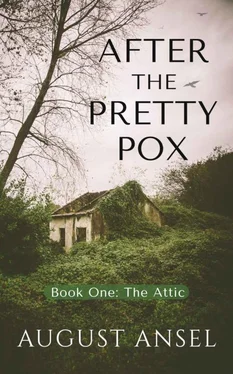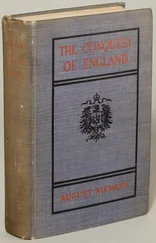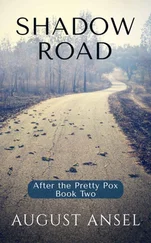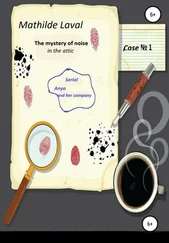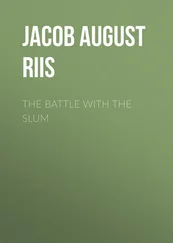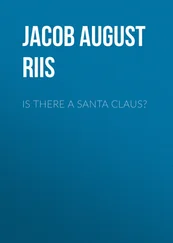“Even me?” said Renna.
“Of course, you,” said Arie. “What do you think all means? I saw how you were getting around today. I think you can manage the climb.”
“I might need a spotter,” she said.
“We won’t let you fall.”
The living room was alive with light. Handy had slipped downstairs before them and worked a minor miracle. Arie’s wooden chair was there, and seats on the floor made from folded blankets wrapped around two upholstered cushions that had somehow survived in the rooms of ruin. He’d polished the chimneys of both kerosene lamps before putting the match to them. Curran’s camp lantern hissed companionably, its white mantle throwing brilliant reflections on the chrome legs of the old dining table. Deep in the shadows of one corner, his bedding and Renna’s were fashioned into a place for them to sleep.
Renna stared around her. She was radiant, her heart-shaped face all smiles in the warm room. To her delight, Handy had laundered Granny’s satin bathrobe, and she wore it now over her regular clothes; the pale peach color of it reflected a blush onto her skin. Her dark curls were piled loosely on top of her head, and Arie thought both men were having a great deal of difficulty not staring.
“I can’t believe it,” Renna said. “Like a real house.”
Arie settled onto her chair. “Bare,” she said, “but rather charming, Handy.”
“You did this?” Renna asked him.
“We all did.”
“Thank you,” Renna said. She hugged Handy. “And look at you,” she said to Talus, who was in a perfect fury of anticipation. She fell on the dog with a great deal of petting and cooing. After a solid minute of this new heaven, Talus disappeared into the little bedroom and returned with a chewed stick; she dropped it at Renna’s feet and panted expectantly. Renna tossed the stick for the dog as if they were outside. It clattered onto the bare floor of the hallway.
Talus didn’t move. Instead, she sat at full attention, staring at Curran. Curran jerked his chin up, and Talus leapt to her feet. When she returned, she gave the stick to Handy, who flung it into the kitchen. “Go get it,” Handy urged, but she didn’t even look away until she got the okay from Curran. Again, he made the motion with his chin. She galloped away like a gigantic puppy, claws scrabbling on the floor.
Arie said nothing. They were making too much noise. They were spending time and energy they couldn’t afford. But they had all been so focused and worked so hard the past two days, she couldn’t bear to once more be the voice of the pedant or the scold. So she waited. She held Renna’s projects in her lap—the notebook, calendar, and brown paper map rolled into a soft tube.
Curran took a seat on the floor beside Arie, and when Talus returned she walked straight to him and flopped down, stretching to show her pale belly. “You’re a shameless flirt,” he told the dog, who rolled from one side to the other, tongue lolling. Handy helped Renna down onto one of the floor cushions, and he sat beside her on the other.
“Now that it’s fixed up, it seems like a waste to leave,” said Renna.
“Better to enjoy it right now than to miss it while you’re still here,” said Arie. “When I was a girl, when I first came to live here, I used to get into black funks, thrashing out old conversations and trying to make the past come out different than it had. I was filled to the brim with fury. I slammed doors and threw my shoes at the wall. When it would get bad that way, Granny would haul me outside to walk. Off we’d go—and she was damn fast, long-legged. I about had to run to keep up. No talking.” She smiled. “I had no breath to spare for talking anyway.
“By the time we finally circled back to home, the fuss would be walked right out of me. I’d be sweating and breathing hard, and before we crossed the threshold, she’d put her hands on my shoulders and say the same thing: ‘Arie, all you need to do is be here now.’ Of course, I’d resist every last bit of it—it was my age. She was right, though. It’s a fine way to shake what wants to chase you.”
“We’re not going to shake what wants to chase us unless we get our asses out of here,” said Curran. He kept his eyes on Talus, who was dozing under his hand, and his voice was speculative, as if he were talking to himself.
“Absolutely right,” said Arie. “My guess is that finding you and Renna is near the top of their list of priorities, the bosses.”
“Maybe we should just go,” said Renna. “I feel well enough. You said yourself that I was a lot better.”
“I think she’s right, Ariela,” said Handy. “Even if we can’t travel fast, we can put miles behind us.”
Arie looked at Curran. “What about you?” she said. “Tell me the truth. Are you well enough to be out there?”
“I’m fine,” he said. “The headache is gone.”
“Dizzy?”
“No.”
“You’re hard to look at, though,” said Handy. “I get a little dizzy when I see your face.”
Curran laughed. “Big talk, Billy-boy. Enjoy my wounds while you can.” He squared his hands at the sides of his head. “Couple of weeks and this face will be throwing you in the shade.”
“Enough,” said Arie. She held up Renna’s calendar. “This is today,” she said, pointing to the last box marked with an X. “I suggest we prepare for a departure here.” She tapped the square two places forward.
“Wednesday,” said Renna.
Arie looked at her, the ghost of a smile on her face. “Is it, now?”
“Yes. I started the calendar on Sunday,” she said. “You said Sunday breakfast.”
“Perfect,” said Arie. “We might be able to leave tomorrow, but I’d like to have a whole day to prepare. Wednesday would be better.”
“That seems right,” said Handy. “Otherwise we’ll be getting started late in the day, and we won’t get far. Believe me, we don’t want to be out gully-whomping in the dark.”
“How far is it?” said Renna.
“Here,” said Arie. She handed the rolled map to Renna. “Orient us.”
Renna spread the brown paper on the floor between them. There was a rough approximation of the coast, a backward C-shape, complete with the north and south spits at the entrance to the bay. She’d added a simple grid pattern over the town with a few street names and drawn the old highway along the edge of the landmass. Arie was delighted to see a carefully made compass rose in the upper-right corner with a large, stylized N pointing north.
“This is great,” said Curran, smoothing his hands over the paper.
“I didn’t have a chance to fill in very much,” said Renna, “but here’s us.” It was a small starred square with a margin of woods on two sides. “This is the river, obviously, and the high school is here. It’s my best guess, distance-wise.”
“They’re about four miles away—close to five,” said Arie. “You’ve proportioned it well. We’ll use this relative distance as our scale for plotting the route north.” She gave Handy a pencil. “Point the way.”
Handy used the span of his hand to gauge an approximate distance. Seven measures north and three east, he drew a circle. “God’s Land,” he said. “Home.” It sat by itself on the far edge of the map, far from the town grid, far from the coastline.
“Damn,” said Curran. “That’s a hike.” All the joviality had fled the room in the very real face of what lay ahead of them.
“It’s far,” agreed Handy. He put a hand to his beard and pulled on it meditatively. “As the crow flies, maybe forty miles, but—”
“But we’re not crows,” said Renna.
“I was a long time getting here, maybe six weeks. The weather was still hot, but the leaves were about to color up. All of this here,” he said, pointing to the empty area between the highway and the circle for home, “is rough travel. There are only two real roads, and they weren’t much to speak of even before the world came down. Now they’re a mess—torn up, washed out. I saw a couple of places that looked to be blown up. And where they look clear to travel, they’re likely set with traps.”
Читать дальше
